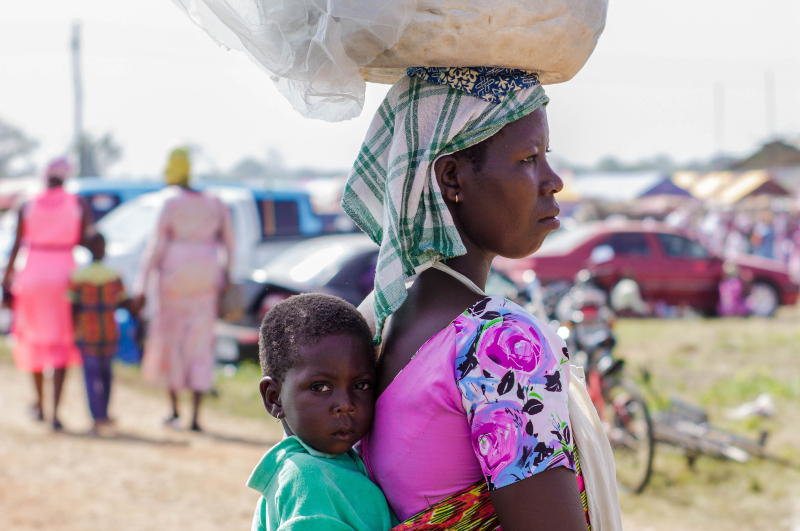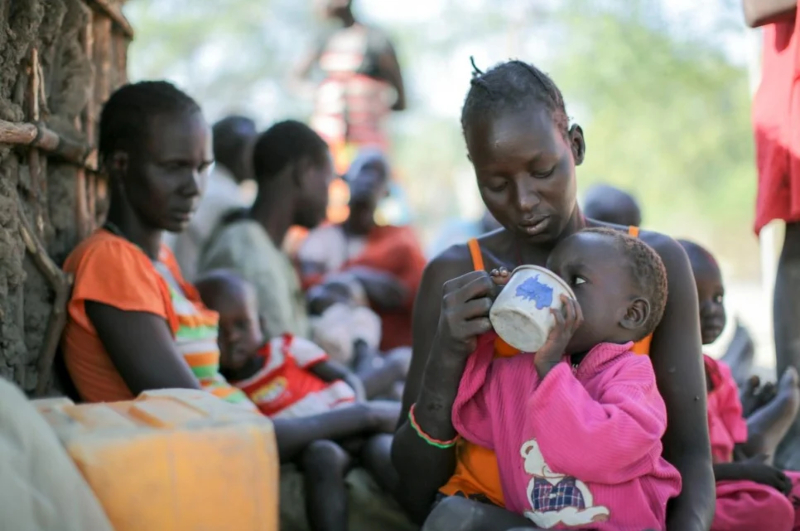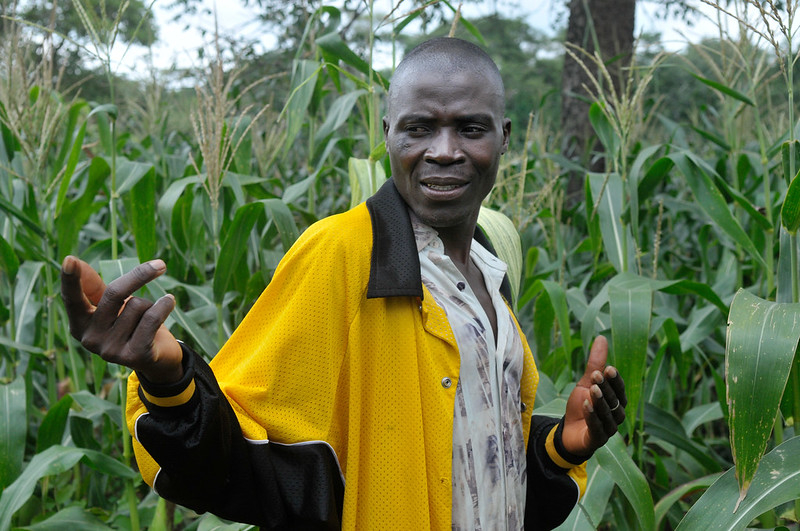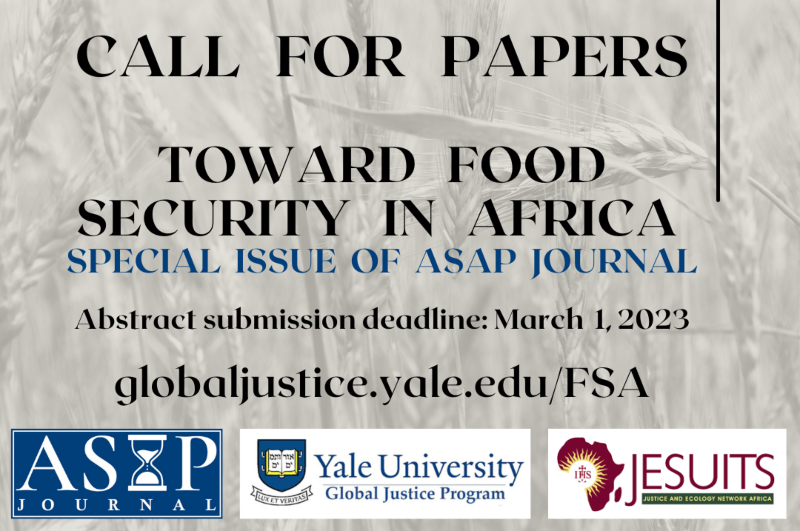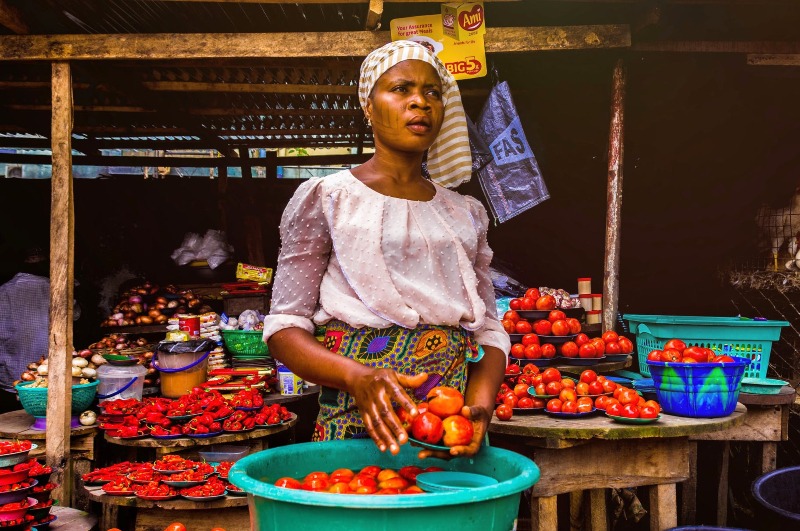


Building back better through mainstreaming social justice and leveraging on ecological agriculture
A blended conference on food security was held in Nairobi, Kenya, at the headquarters of the Jesuit Conference of Africa and Madagascar (JCAM), and streamed virtually through Zoom, from the 22nd to the 24th of June 2021.
The forum was hosted by the Jesuit Justice and Ecology Network of Africa (JENA) in partnership with Caritas Africa. The theme was “Food Sovereignty in times of recovery: Building back better through mainstreaming social justice and leveraging on ecological agriculture”.This event conglomerated national and international specialists, both policy experts and academics, in order to extend the concerns on the journey to build back better to attain Food Sovereignty in Sub-Saharan Africa and beyond in the African Continent.
The Jesuit Conference of Africa and Madagascar (JCAM) President, Fr. Agbonkhianmeghe Orobator, SJ, opened the Conference welcoming all those who travelled all the way to Nairobi, to participate and those following virtually.
Below are his opening remarks:
“We gather here at a time when the COVID-19 pandemic has accentuated and exacerbated glaring and disturbing deficiencies in Sub-Saharan Africa’s food systems. According to a 2020 report by the United Nations Food and Agriculture Organisation (FAO), out of the 690 million people who are hungry worldwide, 36 per cent (or 250 million) are from Africa; that number is projected to rise to 51 per cent (or 841 million) by 2030.
This alarming situation owes to the fact that food systems have been adversely affected, not only by COVID-19, but also by ecological disasters, like drought, floods, locusts and Fall Army Worm infestation. In particular, along the food value chains, that is, food production, distribution and consumption, post-harvest losses have become pronounced among producer-traders (farmers), who tend to have poor food preservation techniques that ultimately affect their household and buyers’ food sovereignty.
Furthermore, weak food distribution channels from surplus to deficit areas, even within the same country, aggravate post-harvest losses and lowers income margins. An FAO report in 2019 indicates that food lost at production stage, before reaching the retail and consumer levels, stands at 14 per cent and 14.5 per cent globally and in Sub-Saharan Africa respectively. This is a clear evidence of weak food systems in Sub-Saharan Africa.
As Pope Francis observed in his message to the 42nd Conference of FAO (2021), the cumulative effect of this situation reveals that “Despite the achievements of past decades, many of our brothers and sisters still do not have access to the quantity or quality of food they need” (Message to FAO, 2021).
Ironically, Sub-Saharan Africa has relatively good climates and arable soils, and the world has more than enough food to feed everyone. However, it is worrisome that in the midst of an abundance of food, millions of Africans still go to bed hungry. In the words of Pope Francis to FAO, “Paradoxically, the very people who produce food are the ones who are going hungry. Three quarters of the world’s poor live in rural areas and depend mainly on agriculture for their livelihoods. However, due to lack of access to markets, land ownership, financial resources, infrastructure and technologies, these brothers and sisters of ours are the ones who are most vulnerable to food insecurity” (Ibid). In light of this reality, the Justice and Ecology Network of Africa (JENA) holds the unshakable conviction that there is no future without food security and climate justice.
Food is more than just what we eat. The ways in which we produce, process and consume food touch every aspect of life on the planet. It is the foundation of our cultures, our economies and our relationship with the natural world. Food has the power to bring us together as families, as communities and as nations. However, today’s systems are fragile and unequal. And when they fail, such failure triggers devastating ripple effects around the world in much the same way that the coronavirus pandemic has impacted the vulnerable among us.
Yet we know what to do to get back on track. We have an opportunity to build back stronger food systems than ever. Transforming our food systems is not only a possibility, it is also a necessity. We can set a course to make real change for the benefit of all people by bringing together various stakeholders from everywhere and giving voice to everyone in every country. A strong food system means that all children, women and men will “have access to the quantity or quality of food they need,” no matter their race, no matter where they live.
Therefore, we must act together to build a resilient world where no one is left behind. This conference presents an opportunity to bring our minds together to generate creative ideas, strategies and collaborative efforts to build back better in order to transform Sub-Saharan Africa into an inclusive, climate-sensitive and food-secure region. This task is crucial to withstand compounded food sovereignty threats such as COVID-19 and climate events, like drought, floods, locusts and Fall Army Worms infestation. Also, this vision will contribute to achieving Sustainable Development Goals (SDGs, 2030) and Africa Agenda 2063, as well as goals and global treaties, like the Paris Agreement of 2015 on climate change commitments.
As Pope Francis also states in his message to FAO, “To provide a solution to these needs, we must above all ensure that food systems are resilient, inclusive, sustainable and able to provide healthy and affordable diets for all” (Ibid). Thus, to build back better and bridge the gaps in Sub-Saharan Africa’s Food Systems, JENA plans to work alongside various stakeholders, both faith and non-faith based, within and outside Africa, which include mainline organisations in the food space, like the World Food Programme, FAO and other like-minded institutions and individuals, to propose a new agricultural development model that supports local biodiversity and ecosystems and the protection of the planet, and prioritises the poor and the most vulnerable.
As we prepare for the forthcoming UN Food Systems Pre-Summit on 26th - 28th July 2021 in Rome, Italy, this conference will help us identify issues specific to Sub-Saharan Africa and generate realistic solutions to contribute to our discussions in the Summit and more importantly to inform efforts to build back better.
Before concluding my remarks, let me express my profound wish that the discussions and agreements resulting from this conference will positively contribute to building back better to realise Food Sovereignty in Sub-Saharan Africa, bearing in mind the advice of Pope Francis, that “merely making plans is not enough to galvanize the international community to action. We need tangible actions rooted in our common membership of the human family and the fostering of fraternity” (Ibid).” - Fr. Agbonkhianmeghe Orobator, SJ
According to the JENA Director, Fr. Charles Chilufya, the Conference sought to answer the following questions:
1. What are the systemic, regional and in-country issues surrounding food sovereignty in Africa?
2. How can Sub-Saharan Africa achieve integral development by balancing attainment of food sovereignty and climate justice amid global trends in industrialization, mechanization and technology?
3. How can Sub-Saharan Africa with support from JENA Food Sovereignty Platform (JFSP) and other development institutions sustainably mainstream social justice with a focus on the poor and vulnerable while leveraging ecological agriculture?
JENA through a press release on June 26th stated that together with Caritas Africa, they have resolved to respond to and support Pope Francis’ call to prepare the future with an aim at seizing the current COVID-19 health crisis as an opportunity to respond to the food security needs affecting mostly the poor and vulnerable.
The press release also expressed that the two faith-based pan-African Catholic organisations are also keen to raise awareness on how bringing about a sustainable food system for all, requires an integral ecology approach, where economic, social and environmental factors and justice are all considered.
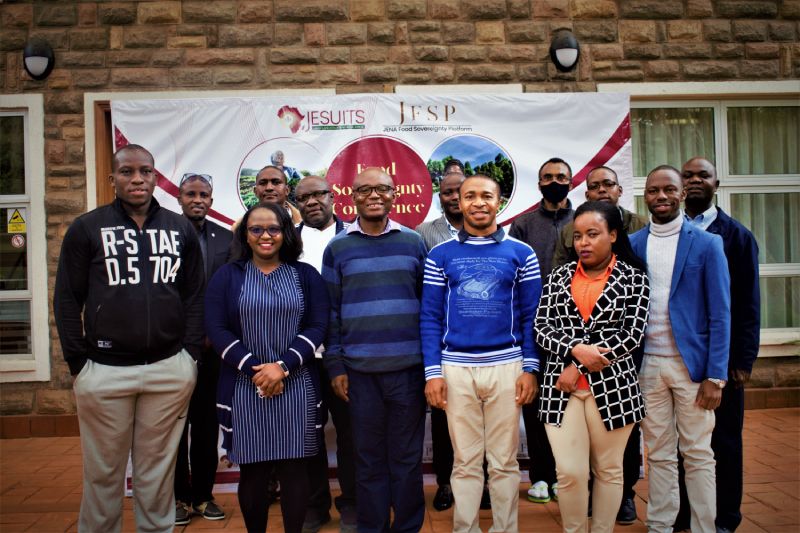 Participants of the JENA Conference on Food Security [Credit: Anastasia/JCAM Communications]
Participants of the JENA Conference on Food Security [Credit: Anastasia/JCAM Communications]
The COVID-19 health crisis has exacerbated the urgency to change the dominant globalized food system and has provided an opportunity for this issue to rise up in the public agenda. Today, enough food is being produced to feed everyone on the planet, yet, more than half a billion people do not have access to healthy, nutritious and sufficient food. The dominant market-driven food system is not ensuring food security for all and the COVID-19 pandemic has revealed and strained this broken system even further, revealing its inequalities. The poor and the vulnerable are being disproportionately impacted by the food chain shocks provoked by the global crisis, which hampers their ability to fully thrive, realize their human rights and contribute to a new horizon for humanity. The food crisis has many facets, but at its core are structural inequities and the necessity to reimagine and create new models that leave no one behind.
Caritas and JENA seek to form a collaborative alliance as part of their effort to promote food sovereignty and agroecology in Africa. The alliance will represent various groups of Jesuit and Caritas members, experts, those they accompany and serve, and those they collaborate with to promote food sovereignty in Africa. These include smallholder farmers, pastoralists, indigenous peoples, like-minded institutions, and environmentalists from across Africa. The core purpose of this alliance is to generate knowledge to influence policy and practice around food systems, both local and international, and to promote African solutions for food sovereignty. The alliance is a continent-wide platform for consolidation of issues pertaining to food sovereignty and marshalling out a single and louder voice by articulating clear and workable solutions.
JENA and Caritas seek to identify effective and forward-looking approaches to guide the creation of an elaborate framework for collaboration, and to achieve resilient post-crisis food systems in which climate and disaster risk reduction and social justice are mainstreamed.
For more information on the JENA work, see the website {HERE}
Related Articles
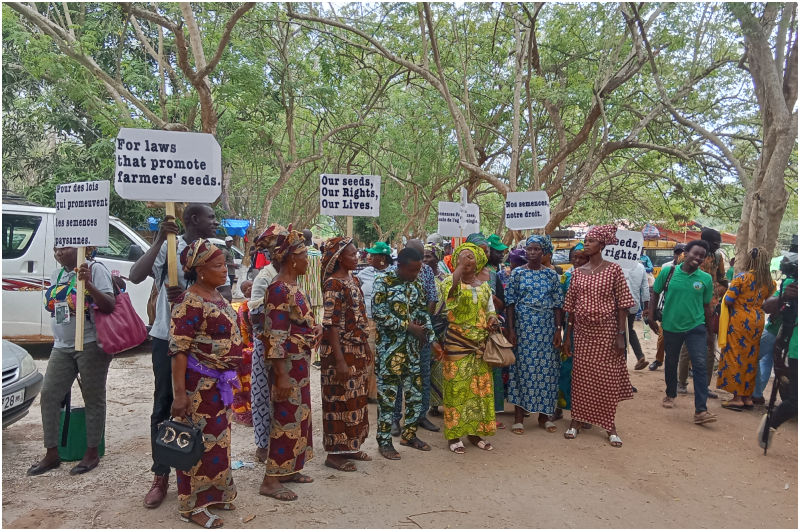
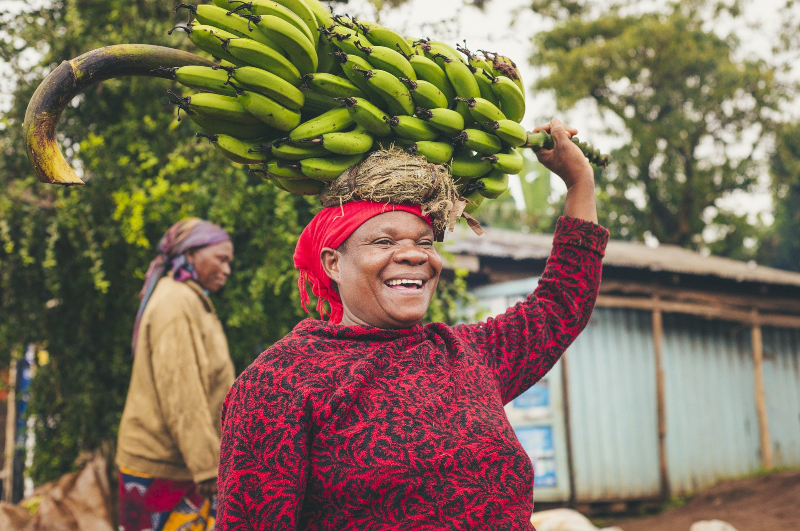
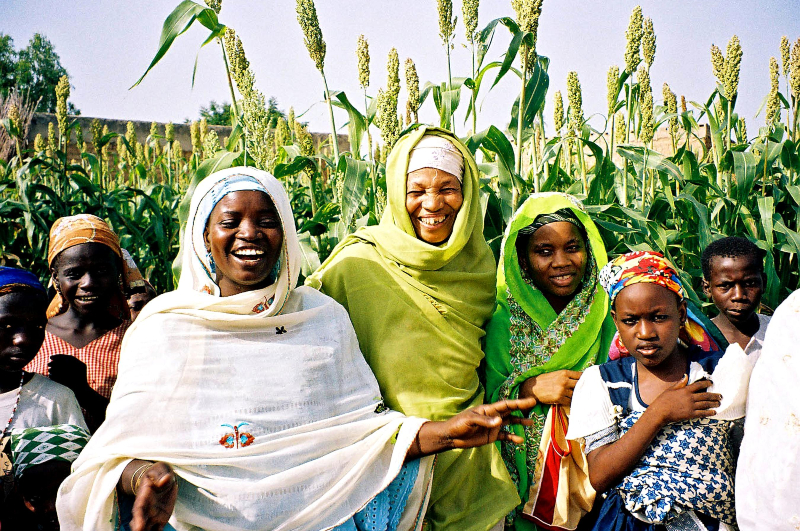
Select Payment Method
Pay by bank transfer
If you wish to make a donation by direct bank transfer please contact Fr Paul Hamill SJ treasurer@jesuits.africa. Fr Paul will get in touch with you about the best method of transfer for you and share account details with you. Donations can be one-off gifts or of any frequency; for example, you might wish to become a regular monthly donor of small amounts; that sort of reliable income can allow for very welcome forward planning in the development of the Society’s works in Africa and Madagascar.
Often it is easier to send a donation to an office within your own country and Fr Paul can advise on how that might be done. In some countries this kind of giving can also be recognised for tax relief and the necessary receipts will be issued.


